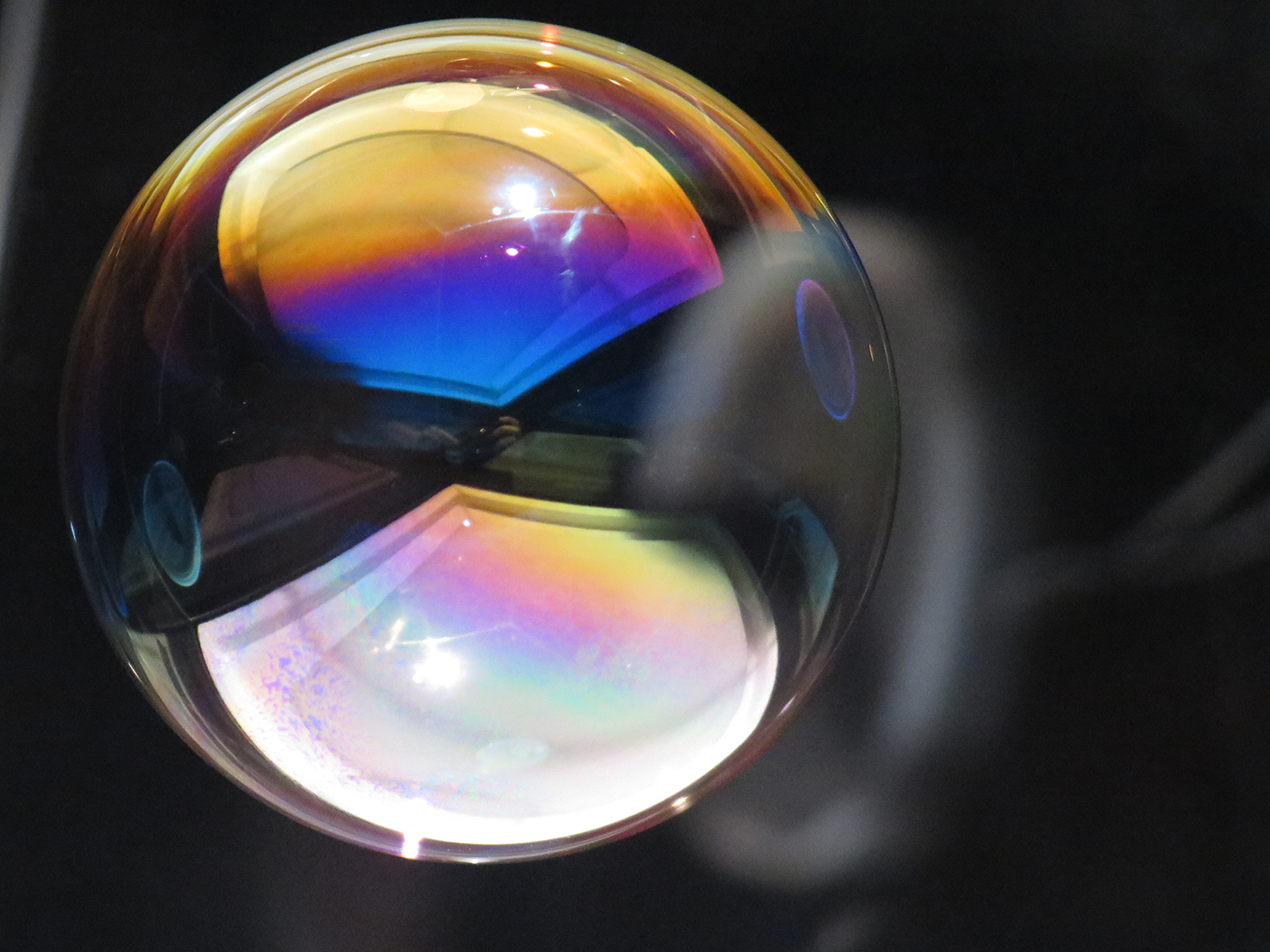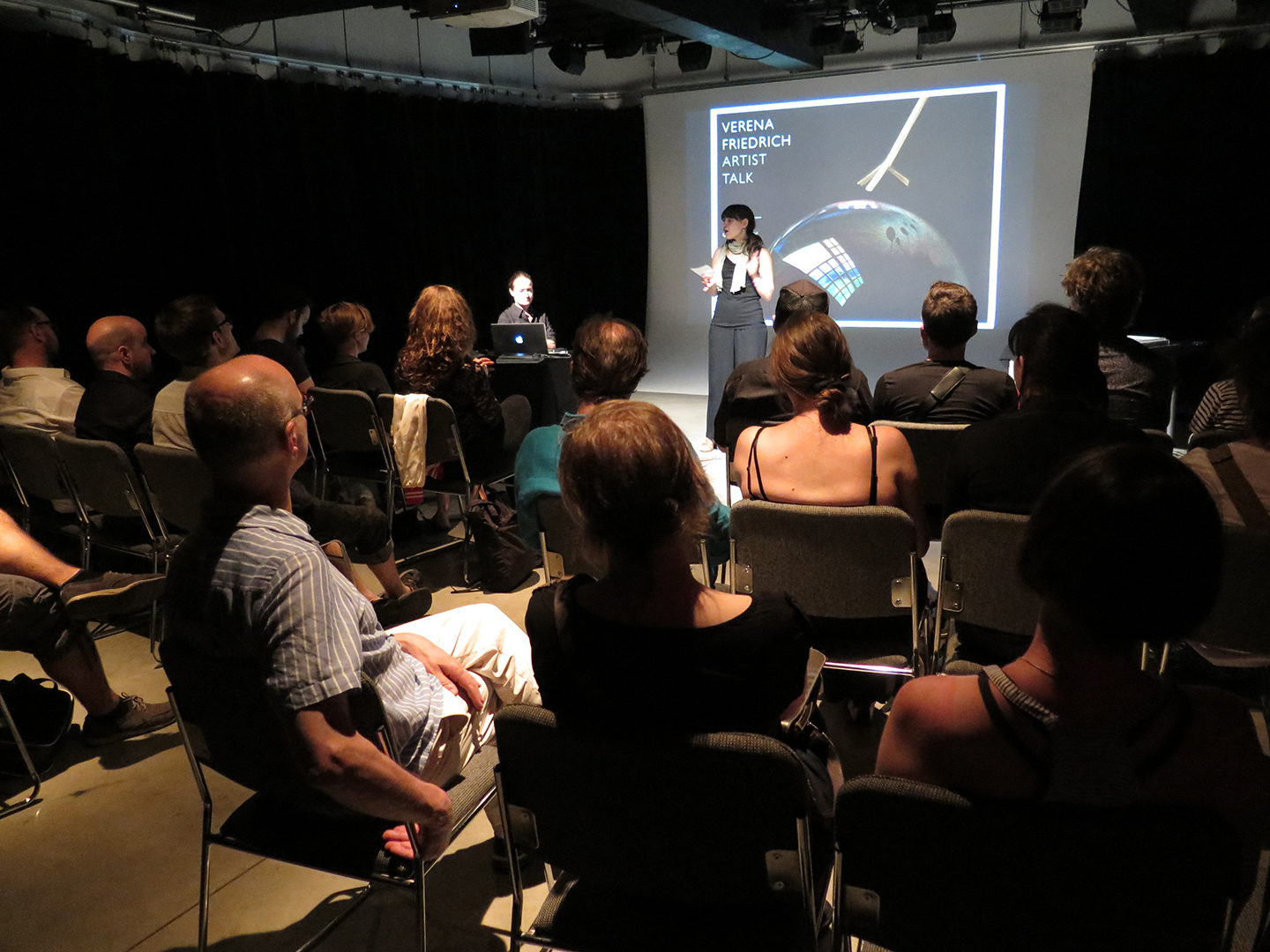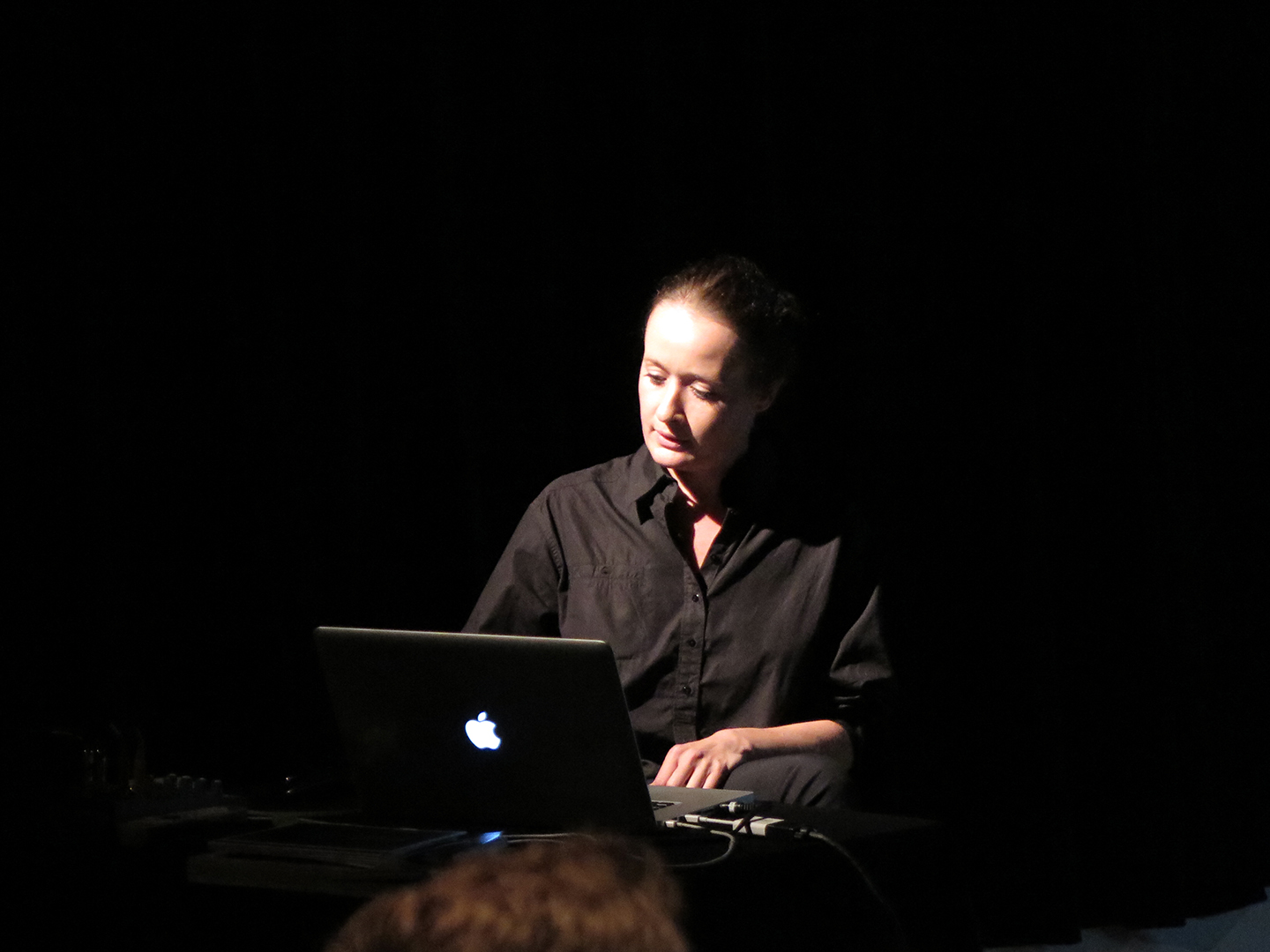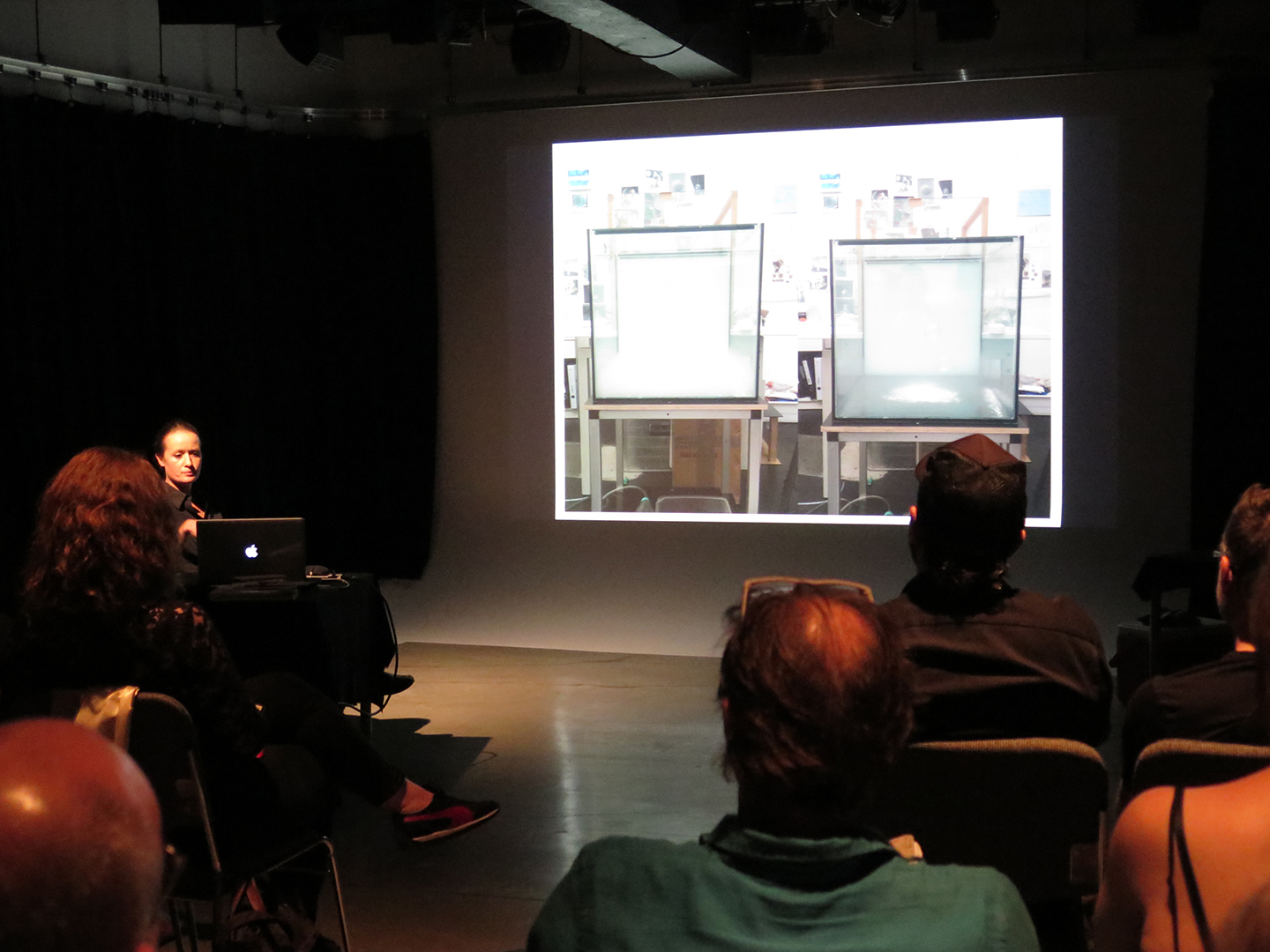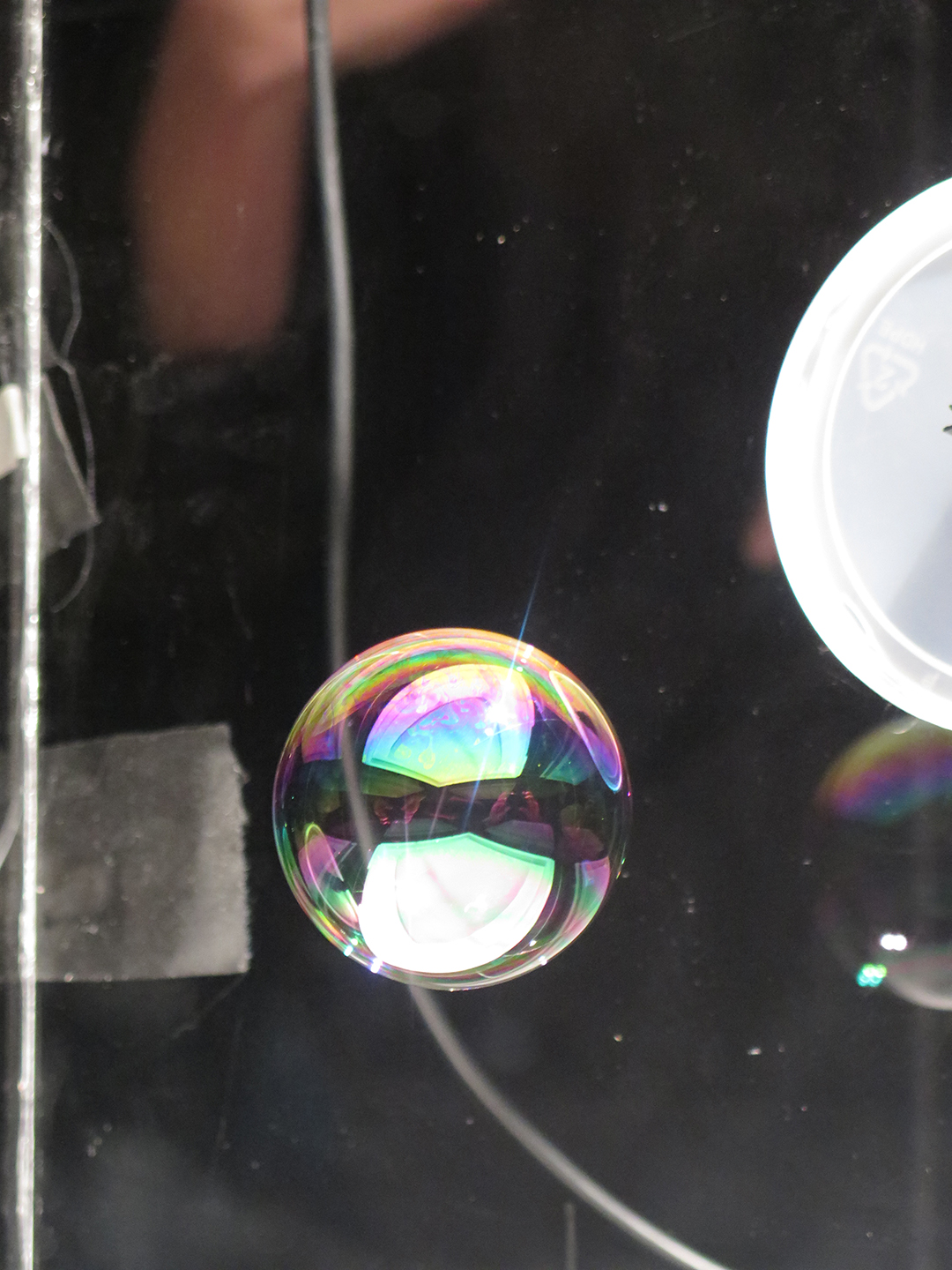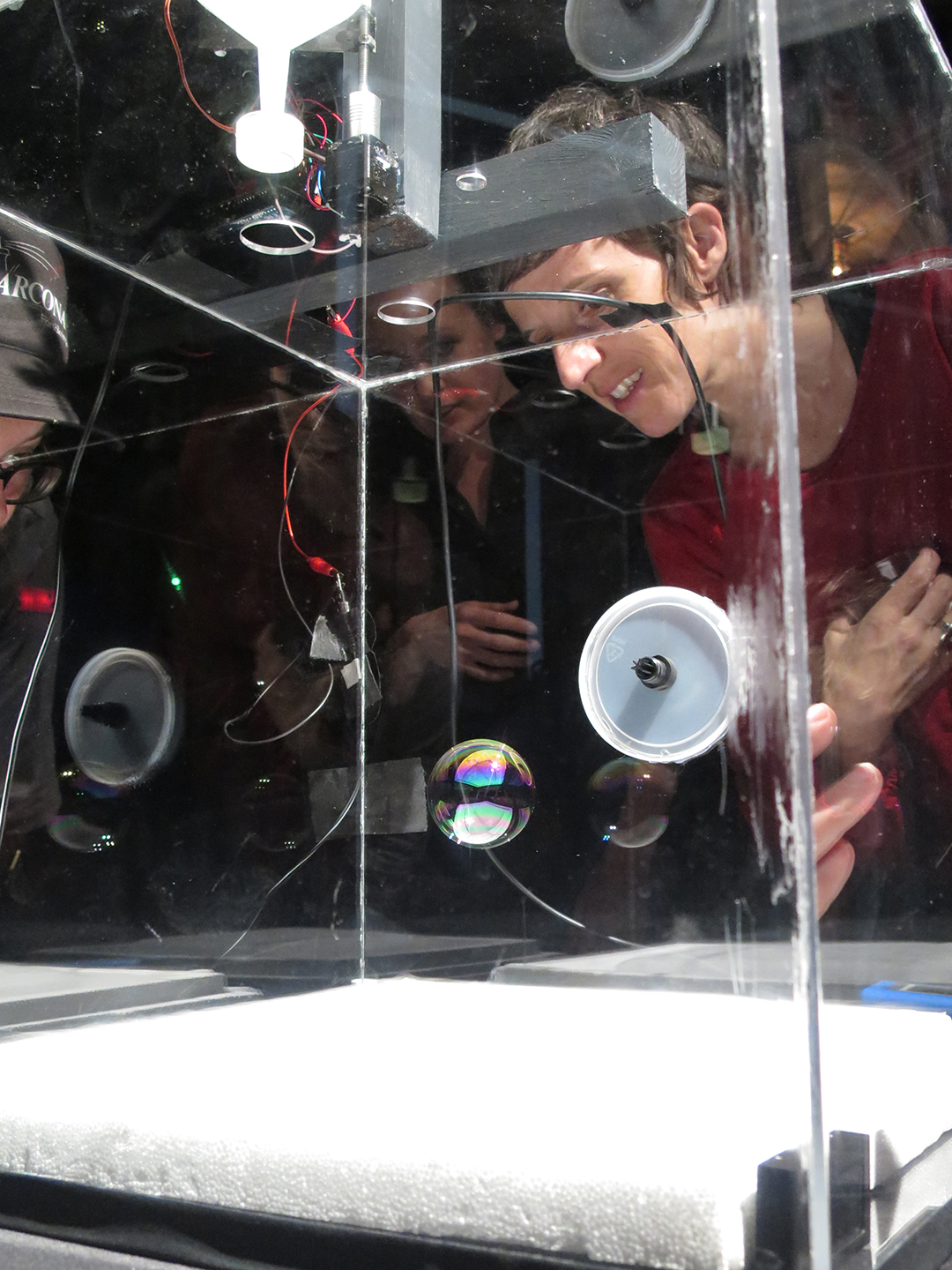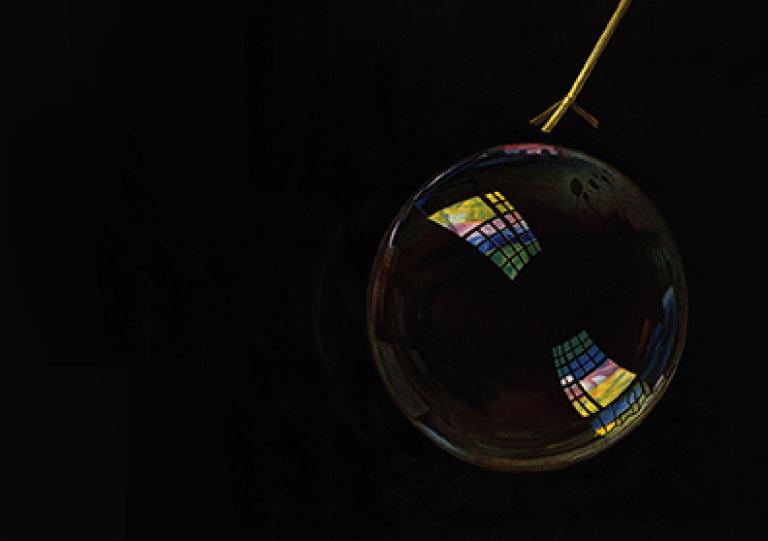With The Long Now, Friedrich draws on the seventeenth-century vanitas paintings, where soap bubbles were often used as visual metaphors for the transient nature of life. Like a soap bubble, life pops out after a relatively short period of time. This project explores the soap bubble from a modern-day perspective, based on its chemical and physical properties and in reference to current developments in science and technology.
Friedrich's objective for The Long Now is to research and develop a machine that will prolong the lifetime of a soap bubble, potentially to make it last forever. The machinery will generate a bubble, send it into a controlled atmosphere chamber and keep it in suspension for as long as possible. To do so, the artist will alter the chemical composition of the bubble to improve its durability.
This technologically enhanced soap bubble will thus permanently oscillate between ephemerality and stability. This project can be seen as a sequel to Friedrich’s Vanitas Machine, in which she intervened with the atmosphere surrounding a candle to make it burn longer. Both address the manipulation and production of “individual” time by interfering with material processes.
